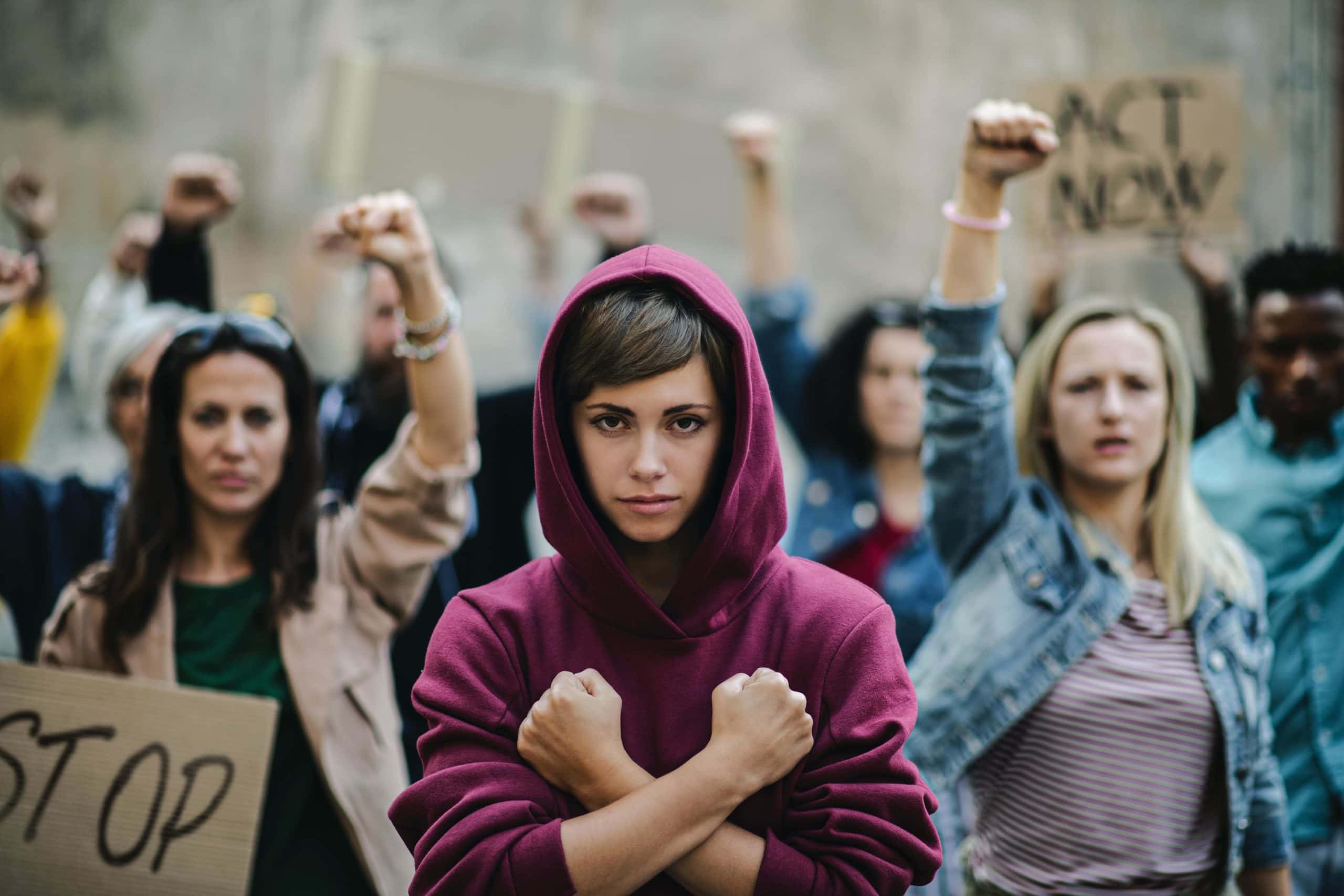Intersectionality refers to overlapping or intersecting social identities such as race, class, and gender. Intersectionality also refers to how race, class, and gender relate to systems of oppression such as racism, sexism, and homophobia. This framework identifies interlocking systems of power that affect those who are most marginalized. LGTBQ+ communities, people of color (POC) communities, and others face oppression and discrimination in diverse ways. The intersectional activism framework aims to shine a light on systemic oppression and pushes for changes to these systems.
Where Did Intersectional Activism and Advocacy Start?
According to the Academe Magazine the term “intersectionality” was first coined by Kimberlé Crenshaw in the late 1980s. People who live with multiple historically oppressed identities often experience multiple forms of discrimination. So, their experiences with oppression and discrimination will be different from people with fewer intersecting oppressed identities. For example, a nonbinary person of color has likely experienced mistreatment relating to both their race and gender identity. Meanwhile, a straight, White woman may have only experienced discrimination due to her gender. Though neither experience is invalid, addressing only one type of discrimination could impact an entire group in need.
Many movements have adopted intersectionality to better serve oppressed groups and address inequities for everyone. In short, intersectionality helps oppressed groups unite under one banner of justice for all.
Fighting for Intersectional Activism and Advocacy
Racism, sexism, homophobia, classism, and ableism all intersect with one another, creating multiple levels of injustice. Many activists have used this framework to fight for equality and justice for those within and without their identity groups. Some advocates fighting for intersectional justice and equality include Angela Davis, Leah Thomas, Shani Dhanda, and Blair Imani. Many others have voiced their ideas to aid in the fight against oppression, all contributing important ideas and values. These social activists all recognize that people globally face many forms of discrimination. They do not stand on the sidelines even if others’ harm does not directly affect themselves.
MLG Stands Against Inequalities and Injustices
MLG stands against any forms of oppression and discrimination, inspiring our team of Racial and Economic Justice attorneys to fight for you. We are uniquely positioned to bring actions against entities and institutions who policies disproportionally harm minority communities. Our team has a common goal of advocacy, partnering with leaders in business, educational institutions, and nonprofits to shed light on inequality. At MLG, we will not rest until these forms of systemic oppression have been stopped.
Contact MLG by completing the form or calling (909) 345-8110 today for a free consultation with our Racial end Economic Justice team.
